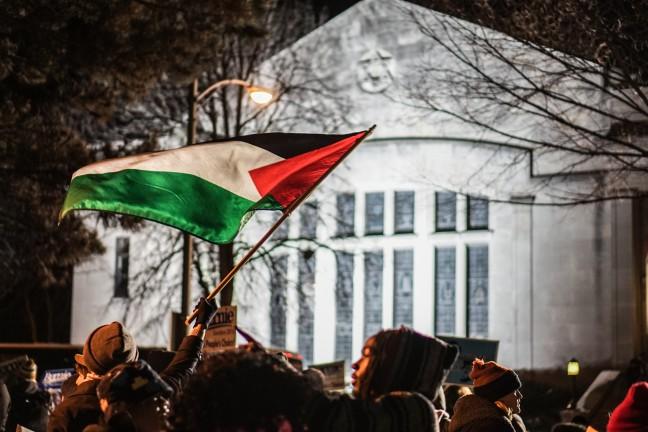I’m fortunate in saying that growing up, anti-Semitism was something I rarely experienced. I grew up in a diverse and accepting area with peers of all walks of life, many of whom were also Jewish. Sure, there were incidents, like the student who laughed while a teacher played actual footage of the bodies in Auschwitz being discarded or the time at camp in rural Pennsylvania I saw a man selling a Nazi flag, but for the most part it was theoretical.
A lot of this changed for me when coming to the University of Wisconsin. Hearing about swastikas on students’ doors or whiteboards became fairly common, I started regularly receiving micro-aggressions from uninformed peers, and when Nazis marched on Charlottesville chanting “Jews will not replace us” the discomfort and shame that had been accumulating throughout my adolescence turned to pure fear.
Another thing I witnessed on campus were allegations of anti-Semitism being used in the wrong places, toward the wrong people. I witnessed predominantly white Jews accuse students of color of being anti-Semitic when they stood up for Palestinian lives.
I witnessed the university condemn anti-Semitism as a means of avoiding divestment from corporations that profit off of Israeli occupation, the Dakota Access Pipeline, mass incarceration and the U.S.-Mexico border wall, yet do little to put an end to swastikas appearing all over campus.
What does it mean for real anti-Semitism when white Jews use it to silence their peers of color? What does it mean when the university condemns anti-Jewish prejudice and violence, but continues to support the oppression of black and brown people? As if Latino Jews, black Jews and Arab Jews don’t exist?
Anti-Semitism is a real issue, Jews are on the receiving end of more violence than any other religious group combined. Throughout history, Jews have faced persecution, exile and genocide. So why is it that speaking out against Israel’s violence, or exploring how Zionism is rooted in colonialism, is lumped together with those who believe us to be a plague to society?
When we say anti-Zionism is anti-Semitism, are we in some way validating literal Nazis who would wish us dead? Anyone can be anti-Semitic, of course, but when I repeatedly see Jews with systems that defend and uplift their whiteness marginalize and silence students of color who don’t have that privilege because they are being “anti-Semitic,” it doesn’t seem to me they’re defending the Jewish people, it seems they are being oppressive.
A friend recently told me that the people fighting for liberation cannot also be the ones to build the future, because even they have been infected with the prejudice and violence of the society that is designed to harm them. I see Israel’s cruelty as being born out of trauma and so, I see Jewish people’s defense of it.
I can understand how it feels easier to combat “anti-Semitism” when it comes from a Palestinian youth than when it comes from an older white man with the physical and systematic power to hurt us. I can understand how when so many would wish us dead, we are willing to sacrifice other’s humanity to protect our privilege.
But I’ve said it before and I’ll say it again: That is the antithesis of Jewish values. I was hoping I wouldn’t have to quote the Torah for you to remember basic human empathy, but in case you forgot, Deuteronomy 10:19 states “You too must befriend the stranger, for you were strangers in the land of Egypt”.
The violence done to the Jewish people should be the reason we support Palestinians, not the reason we defend Israel. It should be the reason we listen to students of color instead of believing that they too are against us.
It should be the reason we all unite against white supremacists and Nazis instead of isolating and demonizing other marginalized peoples.
Nesha Ruther (nruther@wisc.edu) is a sophomore majoring in Jewish studies, gender and women’s studies and English.


